Search Results for: Cats
Skip to resultsCan’t find what you’re looking for? Visit our FAQ page.
2,560 results for: Cats
-
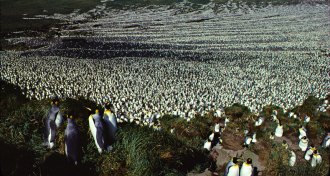 Animals
AnimalsWith one island’s losses, the king penguin species shrinks by a third
Once home to the largest known colony of king penguins, Île aux Cochons has lost most of its birds for unknown reason.
By Susan Milius -
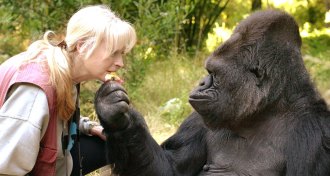 Anthropology
AnthropologyKoko the gorilla is gone, but she left a legacy
An ape that touched millions imparted some hard lessons about primate research.
By Bruce Bower -
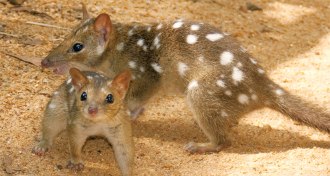 Animals
AnimalsIn a conservation catch-22, efforts to save quolls might endanger them
After 13 generations isolated from predators, the endangered northern quoll lost its fear of them.
-
 Life
LifeDogs carry a surprising variety of flu viruses
Dogs in China carry a wider variety of flu viruses than previously thought, and may be capable of passing the flu to humans.
-
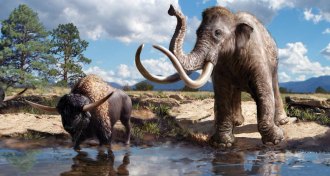 Climate
ClimateWhy won’t this debate about an ancient cold snap die?
Critics are still unconvinced that a comet caused a mysterious cold snap 12,800 years ago.
-
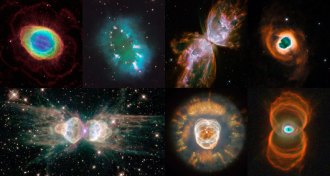 Astronomy
AstronomyNew ideas about how stars die help solve a decades-old mystery
New ideas about stellar evolution help explain why astronomers see so many bright planetary nebulae where they ought not be.
-
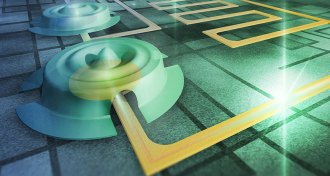 Quantum Physics
Quantum PhysicsSpooky quantum entanglement goes big in new experiments
Scientists entangled the motions of two jiggling devices that are visible with a magnifying glass or even the naked eye — if you have keen vision.
-
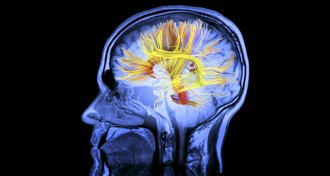 Neuroscience
NeuroscienceWhen tickling the brain to stimulate memory, location matters
Conflicting results regarding the benefits of brain stimulation may be explained by the precise location of electrodes.
-
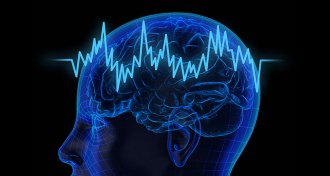 Neuroscience
NeuroscienceBrain waves may focus attention and keep information flowing
Not just by-products of busy nerve cells, brain waves may be key to how the brain operates.
-
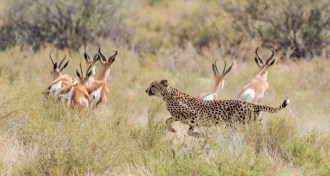 Animals
AnimalsSlower speed, tricky turns give prey a chance against cheetahs and lions
A bonanza of data on wild predators running shows that hunting is more than sprinting.
By Susan Milius -
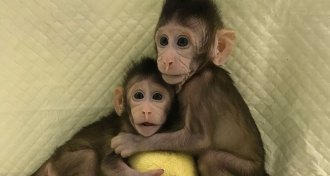 Genetics
GeneticsBaby macaques are the first primates to be cloned like Dolly the Sheep
Scientists have cloned two baby macaque monkeys with the same technique used to clone Dolly. The research could help advance the cloning of other species.
By Dan Garisto -
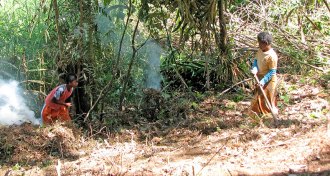 Anthropology
AnthropologyHunter-gatherer lifestyle could help explain superior ability to ID smells
Hunter-gatherers in the forests of the Malay Peninsula prove more adept at naming smells than their rice-farming neighbors, possibly because of their foraging culture.
By Bruce Bower